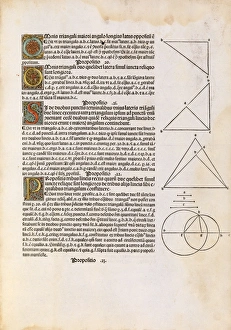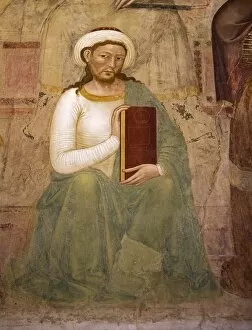Greek Mathematician Collection
Greek mathematicians have left an indelible mark on the world of mathematics, their contributions shaping our understanding of numbers and geometry
All Professionally Made to Order for Quick Shipping
Greek mathematicians have left an indelible mark on the world of mathematics, their contributions shaping our understanding of numbers and geometry. Among them, Archimedes stands as a towering figure, his brilliance immortalized in a bronze statue from 1893. Known for his groundbreaking discoveries in physics and engineering, Archimedes' work continues to inspire scientists today. Another renowned Greek mathematician is Pythagoras, who lived around 580-500 BC. Not only did he develop the famous Pythagorean theorem that bears his name, but he also delved into the realm of music. A title page from Lilium Musicae showcases Pythagoras' fascination with harmonics and its connection to mathematical principles. Intriguingly, Pythagoras was said to have traveled to Egypt where he engaged with Egyptian priests in intellectual discourse. An engraving captures this meeting between two ancient civilizations - Greece and Egypt - both rich in knowledge and wisdom. The School of Pythagoras offers us a glimpse into the educational environment during that time period. This illustration from Le Monde Illustre depicts students gathered around their esteemed teacher, absorbing mathematical teachings that would shape their thinking for years to come. Thales of Miletus is yet another influential Greek mathematician whose legacy lives on through engravings capturing his image. Living approximately between 625-547 BC, Thales made significant strides in geometry and astronomy while also dabbling in philosophy. One cannot discuss Greek mathematics without mentioning Euclid's Elements of Geometry from 1482 - a seminal work that laid down the foundations for modern geometric principles. This book revolutionized mathematics education by presenting logical proofs systematically. Euclid's Elements became so iconic that it warrants multiple mentions here; each repetition emphasizes its enduring importance throughout history. Its impact can still be felt today as it remains one of the most widely studied mathematical texts ever written.








